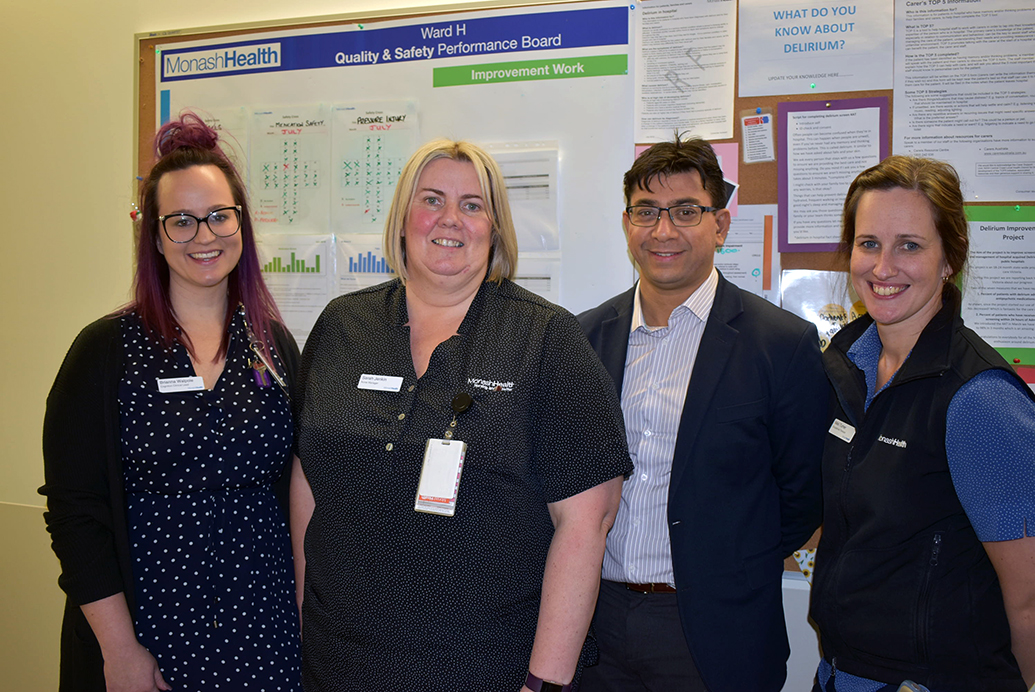Clinicians profile
Detecting delirium before it begins
Published 07/04/2022
Delirium is a difficult condition to detect due to its fluctuating nature. By introducing a simple admission step, Eastern Health increased identification of at-risk patients and increased patient safety. Find out exactly how they did it.
Imagine reducing harm and length of stay for older patients in your hospital, through a simple screening process on admission.
By introducing a screening tool within 24 hours of admission, Eastern Health was able to better detect delirium – a serious medical condition which can lead to serious implications such as falls, pressure injuries, longer stays in hospital and sometimes even death.
The health service exceeded their goal of 90 per cent of patients receiving cognitive screening for possible delirium and significantly reduced the length of stay by half a day.
Eastern Health was one of 21 partnering health services in our Delirium Collaborative.
“This was a great opportunity for us to network and share with other health services, exceed our goals and implement major change.”
Melinda Webb-St.Mart, Clinical Risk Manager, Comprehensive Care, Eastern Health
Overcoming barriers
The best treatment for delirium is prevention. We know we can prevent patients from developing hospital acquired delirium in 30-40 per cent of cases. The problem is it’s often not detected early by health professionals and can be misdiagnosed for dementia or depression.
Through the Delirium Collaborative, Eastern Health was able to embed and share tools and processes which they’d previously found challenging to implement. It also helped translate key requirements of new National Accreditation Standards and the Delirium Clinical Care Standard.
Melinda said the process and outcome data also gave Eastern Health’s Executive and staff greater visibility of the benefits that could be achieved by managing delirium more effectively.
"There is so much value in hearing frontline clinician and consumer perspectives as to how well something does or doesn’t work and then involving them in the solution rather than imposing it from top down. Involve frontline clinicians in small PDSA cycles when you want to test and implement a new process or tool."
The enduring results of the work can be seen in the introduction of Behaviour of Concern educators who use the tools developed by the Delirium Collaborative team at Eastern Health.
Learn from consumers
Eastern Health’s team included a consumer representative, bringing a new perspective to the work through:
- Co-design of patient education materials and ward patient and family education boards
- Active participation in assisting with delirium environmental audits
- Sharing his personal experience of caring for his mother and how he would have liked to have been involved in her care through staff education sessions
- Obtaining face to face feedback from carers on the ward regarding new processes to engage families and patients e.g. Forget Me Not Flower
- Providing the family perspective when developing scripts for junior staff to have a conversation with a family member of a patient with delirium.
“We have had such positive responses from families, carers and staff who have made use of the tools [the consumer representative] was involved in developing.”
While the project has come to an end, the team is still working towards ensuring their patients receive further medical assessment for delirium.


